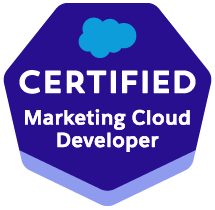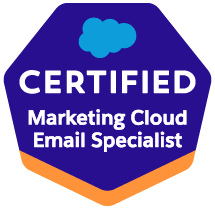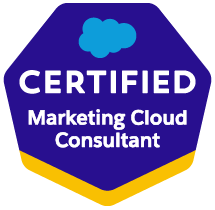Salesforce marketing cloud architect
Becoming a Marketing Cloud Architect is not possible without many years experience, and exposure to different projects. Marketing Cloud implementations.
Marketing Cloud Architects are responsible for the solution design with integrated systems and data points, to create the solutions right for the clients needs.
They control the data model and release management for very large and small Marketing Cloud implementations, because good foundations start with the right architecture.
The role is a hybrid between that of a technical consultant or developer who has built these solutions in the past or can work out the missing piece of the puzzle.
No surprise that it involves a high amount of stakeholder management, as Marketing Cloud Architects will be driving digital transformation that extends beyond marketing operations.




